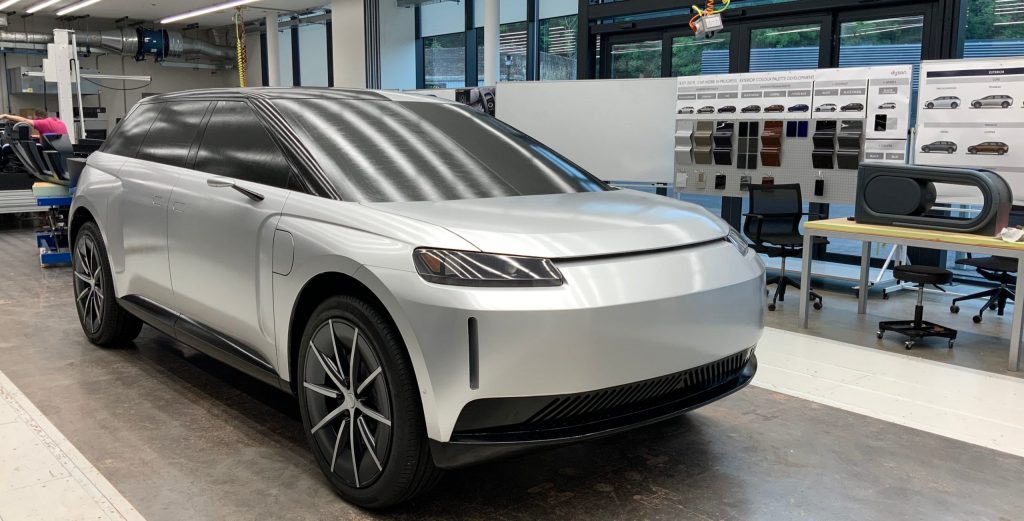Meet the Dyson Battery Electric Vehicle. You guys are familiar with Dyson, the British tech company best known for things that go round and round — notably fans, vacuum cleaners and hair dryers.
If you’d been paying attention, you would have known that Dyson had set its sights on another electric thing that goes round and round — an attempt at an electric car. The vehicle was supposed to launch this year, after more than £2 billion was thrown at the project, but it’s not going to happen.
What’s the big deal?
 But we’ve known about the project’s cancellation since October last year when it took place. So what’s changed? Er… nothing. The Dyson Battery Electric Vehicle (which you can bet would have been referred to as BEV in the office) isn’t coming back for a miraculous launch. No, James Dyson has just decided to share with everyone details of the thing they’ll never own.
But we’ve known about the project’s cancellation since October last year when it took place. So what’s changed? Er… nothing. The Dyson Battery Electric Vehicle (which you can bet would have been referred to as BEV in the office) isn’t coming back for a miraculous launch. No, James Dyson has just decided to share with everyone details of the thing they’ll never own.
The Dyson post details in brief everything about the development of the car, including what eventually killed it — a lack other cars in their stable. The big boys like Ford, Audi, and the rest offset the cost of EVs by selling traditional cars, an avenue that Dyson just didn’t have. The company sells a lot of vacuum cleaners and hair dryers but nobody is capable of selling that many.
 It looks as though development was nigh-on complete when the company shut down the project. The Battery Electric Vehicle was fully functional, an impressive feat for a company that didn’t crib spares from other companies who had done this sort of thing before. The car was intended as a platform, with additional styles beyond the SUV in the offing if it had ever hit the road in earnest.
It looks as though development was nigh-on complete when the company shut down the project. The Battery Electric Vehicle was fully functional, an impressive feat for a company that didn’t crib spares from other companies who had done this sort of thing before. The car was intended as a platform, with additional styles beyond the SUV in the offing if it had ever hit the road in earnest.
Everything from the battery layout to the interior was locked down, and Dyson had some interesting ideas with regards to the seats. Adding the sort of lumbar support mostly seen in expensive computer chairs seems like a no-brainer but we don’t see that in many vehicles. Dyson was gonna, but then the project folded.
The Battery Electric Vehicle wasn’t shuttered in vain. James Dyson said, “Since the automotive project closed, the airfield became the home of Dyson’s COVID-19 ventilator project. Now it will become a new home to our Robotics, Environmental Care, Professional and Lighting teams – so that they can expand their work.”




